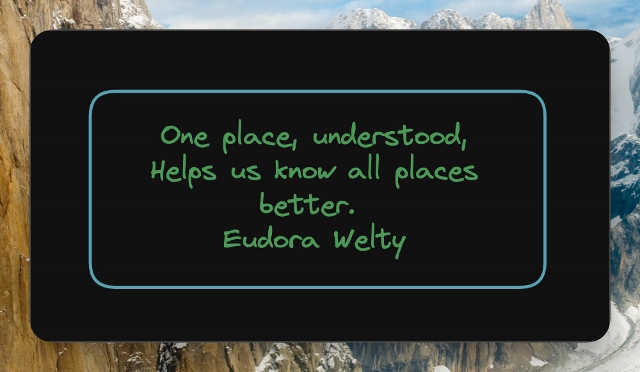If we can’t put the genie back in the bottle, let’s be thankful for an educationally-broadening benefit from our use of the ubiquitous tool that many humans possess on their person no less regularly than they possess eyes and ears: their smartphones.
Use them, since you already possess them, to begin to grow a base of nature-knowledge and kinship. We’ll call this your child’s growing nature literacy in which the young learner comes to know the names. But more importantly, from that recognition to wondering about the ecology, anatomy, taxonomy and natural history of as many of the things living in their common space as they are able over an entire lifetime.
And what a great time to incorporate sketching, photography or story telling into their education beyond walls! And what a fine project to begin for children schooled at home–which since the Covid Years, is quite a number.
Now you have started on a journey of becoming worldly-wise. Nature literacy is just the first step.
As it grows, it engenders a sense of place–a local context of YOU in space and time; you and the stories you hear and tell about the creatures you have known by name through the seasons.
Sense of place—over time—leads to what I call a “personal ecology” by which you grow to see yourself as every bit as woven into the rhythms and workings of forest and wetland, meadow and mountainside as the downy woodpecker you ID’d by the Audubon app just yesterday.
 Personal ecology brings you—yes I mean YOU—into the Great Web of Life on Earth, and makes you an embedded citizen of the Biosphere.
Personal ecology brings you—yes I mean YOU—into the Great Web of Life on Earth, and makes you an embedded citizen of the Biosphere.
And when you grow up or grow older with this way of seeing and knowing yourself as a member of the dedicated crew of Spaceship Earth, when you deeply know by name and understand and care for your bit of Earth that you call home, you’ll be drawn naturally to care for and about all living creatures in all living places or habitats or biomes the world over.
If we can attain to this new relationship with nature, our species can move away from eco-apathy and planetary dysfunction towards eco-empathy.
The human species can become a sustaining—rather than a depleting—resource towards the Ecology of Well-being. To reach that end, every law or regulation, policy or behavior that contributes to the long-term health of the planet’s living systems, we will support.
If they do the opposite, we will oppose them. Nature literacy gives us the foundational knowledge to make such judgments and take action.
That may seem like a reach, but this is my sense of how important it is to “know them by name” as a first step towards a world we want to leave as legacy for our children. We are their field guides. They will go where we lead them, and if a pocket phone app can open their world to the biosphere, then by all means, start—but don’t end—there.
This five part Saturday series was taken and mildly edited from a single post on Fragments from Floyd. Long story there, past and possibly future. But I thought I’d give you few who would like to, the opportunity to read all in one piece and one place. And from there, if you choose, to wander in some related areas at Fragments—a mortally wounded (hacked) personal sight since 2002, which stands a good chance of rebirth in the near future.
- Fred First

